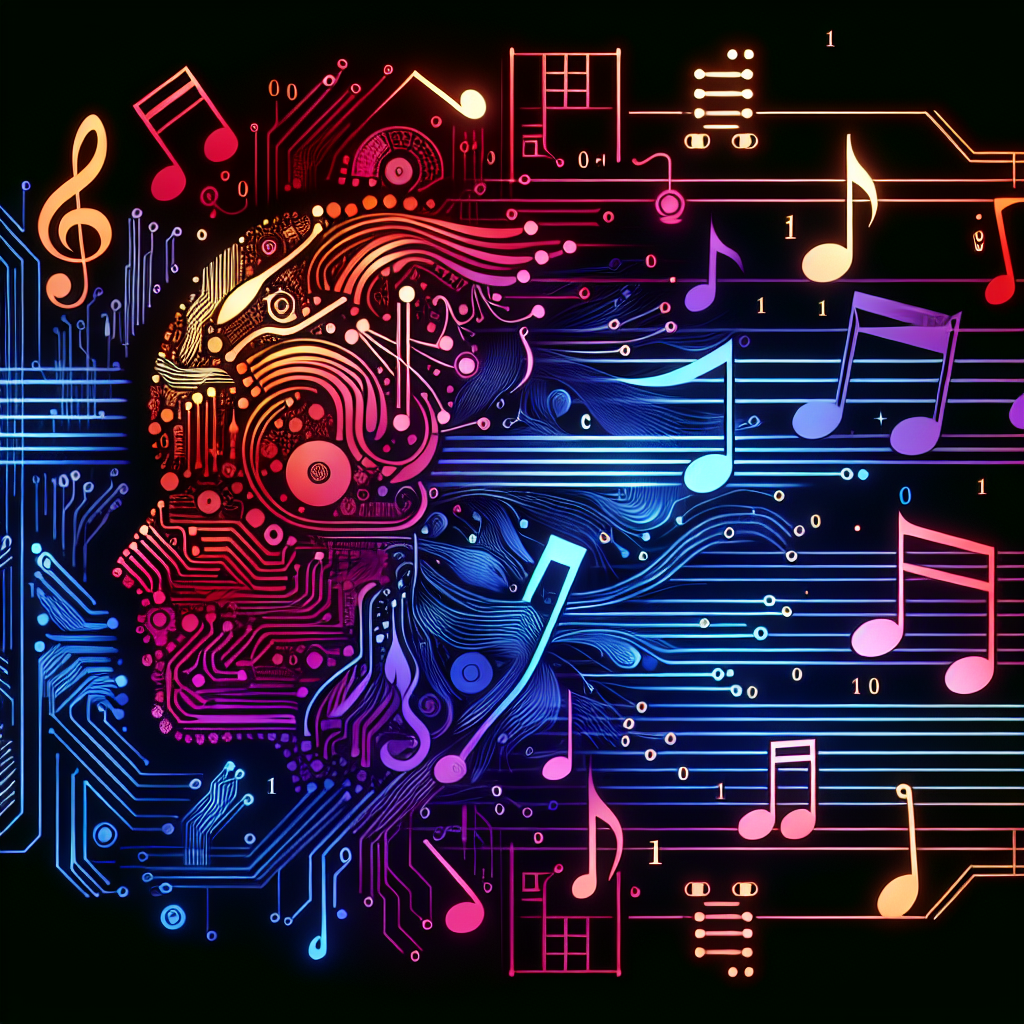The Business of AI in Music: Opportunities and Challenges
Artificial intelligence (AI) has become increasingly prevalent in various industries, including music. From creating music to analyzing consumer preferences, AI has the potential to revolutionize the music industry in numerous ways. However, like any new technology, there are both opportunities and challenges that come with the integration of AI in music. In this article, we will explore the current landscape of the business of AI in music, the opportunities it presents, and the challenges that must be overcome.
Opportunities:
1. Music Creation:
One of the most significant opportunities AI presents in the music industry is in music creation. AI algorithms can compose music autonomously, providing musicians with endless possibilities for inspiration and creativity. Companies like Amper Music and AIVA are leading the way in AI-generated music, providing artists with tools to create unique compositions quickly and efficiently.
2. Personalized Music Recommendations:
AI can also be leveraged to provide personalized music recommendations to consumers. Streaming platforms like Spotify and Apple Music use AI algorithms to analyze user listening habits and preferences to curate playlists tailored to individual tastes. This not only enhances the user experience but also helps artists reach a wider audience by matching their music with listeners who are likely to enjoy it.
3. Music Production:
AI can streamline the music production process by automating tasks such as mixing and mastering. Companies like LANDR and AI Mastering offer AI-powered tools that can enhance the quality of audio recordings, making it easier for artists to produce professional-sounding music without the need for expensive studio equipment or a team of engineers.
4. Copyright Protection:
AI can also help protect musicians’ intellectual property rights by detecting and flagging unauthorized use of their music online. Companies like Audible Magic use AI algorithms to monitor digital platforms for copyright infringement, helping artists and record labels protect their work and receive proper compensation for their music.
Challenges:
1. Lack of Creativity:
One of the main challenges of AI-generated music is the perception that it lacks the emotional depth and creativity of human-created music. While AI algorithms can produce technically proficient compositions, they may struggle to capture the nuances and emotions that make music truly compelling. As a result, some artists and listeners may be hesitant to embrace AI-generated music as a legitimate form of artistic expression.
2. Data Privacy Concerns:
AI algorithms rely on large amounts of data to function effectively, including personal information about users’ listening habits and preferences. This raises concerns about data privacy and security, particularly in light of recent data breaches and scandals involving tech companies. Artists and consumers may be wary of sharing sensitive information with AI-powered music platforms, leading to potential backlash and mistrust.
3. Fair Compensation:
As AI becomes more integrated into the music industry, questions arise about how artists will be compensated for their work. While AI-generated music may offer cost-effective solutions for music production, there is a risk that artists may be undervalued or marginalized in favor of AI-generated content. Ensuring fair compensation for artists and creators in the age of AI will be crucial to maintaining a sustainable and equitable music industry.
4. Ethical Considerations:
AI-powered music platforms raise ethical questions about the role of technology in shaping cultural and artistic expression. Issues such as algorithm bias, copyright infringement, and the impact of AI on traditional music practices must be carefully considered to ensure that AI is used responsibly and ethically in the music industry. Artists, music industry professionals, and policymakers must collaborate to establish guidelines and regulations that protect the integrity of music while harnessing the benefits of AI technology.
FAQs:
Q: Can AI compose music as well as human musicians?
A: While AI algorithms can generate technically proficient music, they may struggle to capture the emotional depth and creativity of human-created music. AI-generated music is often used as a tool for inspiration and collaboration rather than a replacement for human musicians.
Q: How can AI benefit musicians and music producers?
A: AI can streamline the music production process by automating tasks such as mixing and mastering, providing personalized music recommendations to consumers, and protecting artists’ intellectual property rights. AI-powered tools can enhance creativity, efficiency, and profitability for musicians and music producers.
Q: What are the ethical considerations of using AI in music?
A: Ethical considerations of AI in music include algorithm bias, copyright infringement, and the impact of AI on traditional music practices. It is essential to establish guidelines and regulations that ensure AI is used responsibly and ethically in the music industry.
In conclusion, the business of AI in music presents exciting opportunities for innovation and growth, from music creation to personalized recommendations and copyright protection. However, challenges such as creativity, data privacy, fair compensation, and ethical considerations must be addressed to harness the full potential of AI in the music industry. By navigating these challenges thoughtfully and collaboratively, the music industry can leverage AI to enhance creativity, efficiency, and profitability while preserving the integrity of music as an art form.

